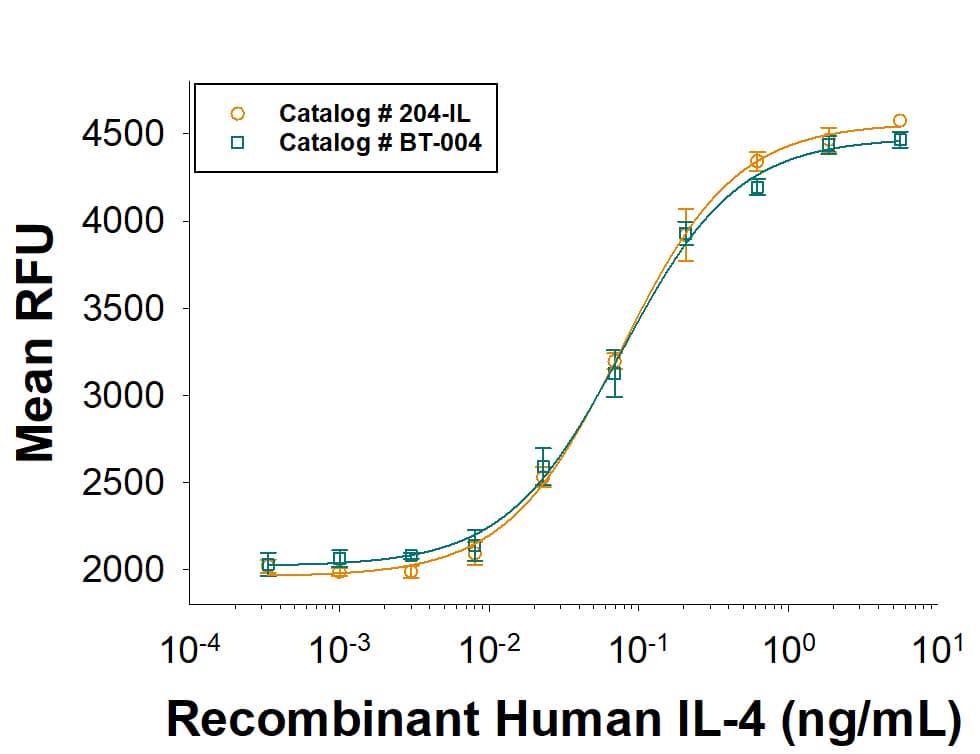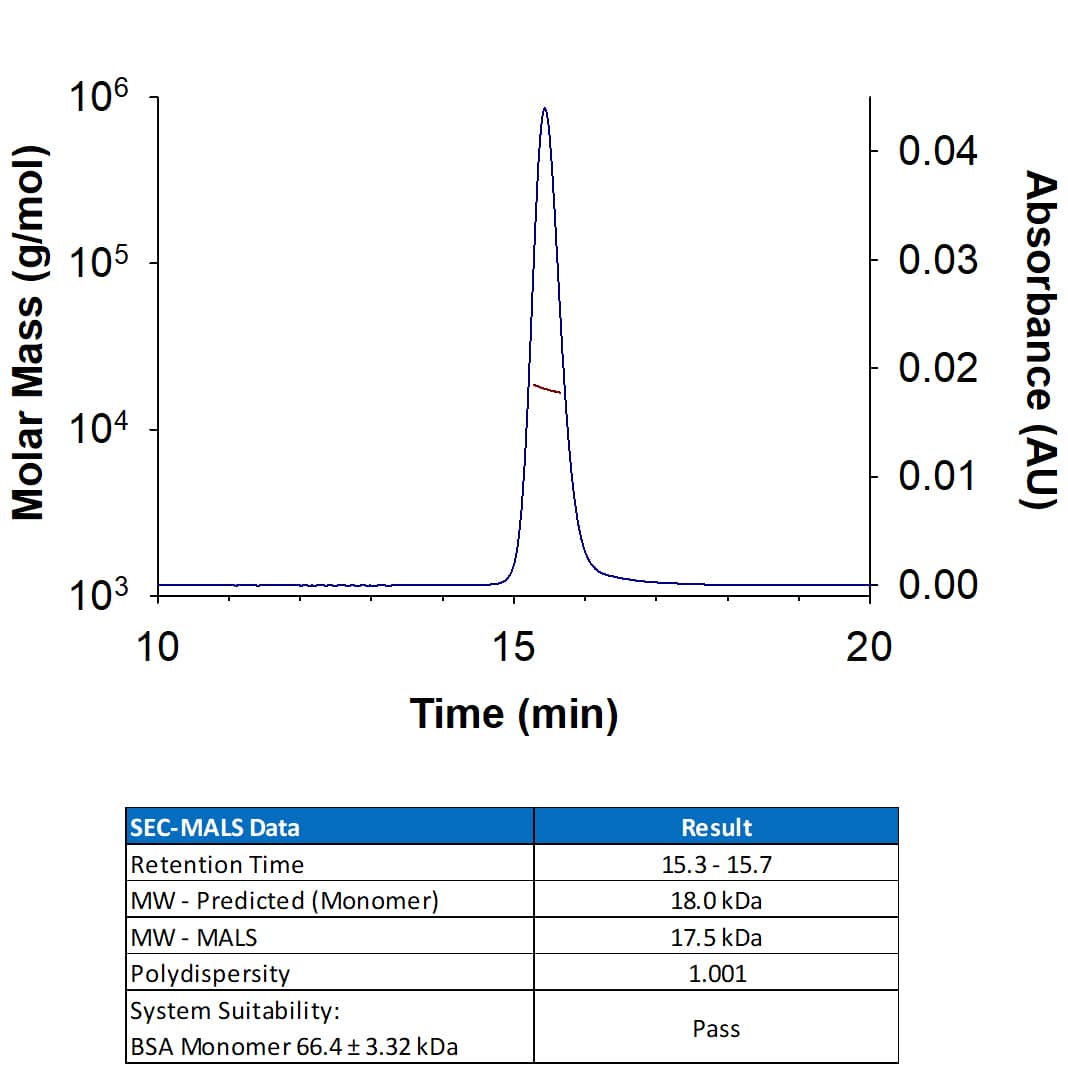Cultrex Poly-L-Lysine
Cultrex Poly-L-Lysine Summary
Cultrex Poly-L-Lysine is a poly-amino acid solution that is provided ready to use at a concentration 0.01%.Key Benefits
• Promotes the proliferation and differentiation of a variety of neuronal cell lines
• Facilitates cell adhesion on tissue culture-treated plastic or glass surfaces
• Contains polymers in the 70,000-150,000 Da range
• Provided in phosphate-buffered saline (PBS)
Why Use Cultrex Poly-L-Lysine?
Poly-L-Lysine, a highly positively charged synthetic amino acid chain, is commonly used as a coating agent to promote cell adhesion in culture on tissue culture-treated plastic or glass surfaces. Moreover, poly-L-Lysine contains polymers in the 70,000-150,000 Da range and promotes the proliferation and differentiation of a variety of neuronal cell lines. This solution is provided sterile filtered and ready to use at 0.01%.
Specifications
Limitations
For research use only. Not for diagnostic use.
Product Datasheets
Customers also Viewed
Citations for Cultrex Poly-L-Lysine
R&D Systems personnel manually curate a database that contains references using R&D Systems products. The data collected includes not only links to publications in PubMed, but also provides information about sample types, species, and experimental conditions.
22
Citations: Showing 1 - 10
Filter your results:
Filter by:
-
Altered mitochondria-associated ER membrane (MAM) function shifts mitochondrial metabolism in amyotrophic lateral sclerosis (ALS)
Authors: Larrea, D;Tamucci, KA;Kabra, K;Velasco, KR;Yun, TD;Pera, M;Montesinos, J;Agrawal, RR;Paradas, C;Smerdon, JW;Lowry, ER;Stepanova, A;Yoval-Sanchez, B;Galkin, A;Wichterle, H;Area-Gomez, E;
Nature communications 2025-01-03
-
Characterization of neural infection by Oropouche orthobunyavirus
Authors: Connors, KA;Pedlow, MR;Frey, ZD;McGaughey, JJ;Amarasinghe, GK;Duprex, WP;D'Aiuto, L;Wills, ZP;Hartman, AL;
bioRxiv : the preprint server for biology 2024-10-12
-
TMX1, a disulfide oxidoreductase, is necessary for T cell function through regulation of CD3?
Authors: Chai, T;Loh, KM;Weissman, IL;
bioRxiv : the preprint server for biology 2024-09-24
-
Assessing Trans-Inhibition of OATP1B1 and OATP1B3 by Calcineurin and/or PPIase Inhibitors and Global Identification of OATP1B1/3-Associated Proteins
Authors: Powell, JT;Kayesh, R;Ballesteros-Perez, A;Alam, K;Niyonshuti, P;Soderblom, EJ;Ding, K;Xu, C;Yue, W;
Pharmaceutics 2023-12-31
-
Extracellular tau stimulates phagocytosis of living neurons by activated microglia via Toll-like 4 receptor-NLRP3 inflammasome-caspase-1 signalling axis
Authors: Pampuscenko, K;Morkuniene, R;Krasauskas, L;Smirnovas, V;Brown, GC;Borutaite, V;
Scientific reports 2023-07-04
-
Super-resolution imaging unveils the self-replication of tau aggregates upon seeding
Authors: Dimou, E;Katsinelos, T;Meisl, G;Tuck, BJ;Keeling, S;Smith, AE;Hidari, E;Lam, JYL;Burke, M;Lövestam, S;Ranasinghe, RT;McEwan, WA;Klenerman, D;
Cell reports 2023-07-01
-
Escape from NK cell tumor surveillance by NGFR-induced lipid remodeling in melanoma
Authors: J Lehmann, N Caduff, E Krzywi?ska, S Stierli, A Salas-Bast, B Loos, MP Levesque, R Dummer, C Stockmann, C Münz, J Diener, L Sommer
Science Advances, 2023-01-13;9(2):eadc8825. 2023-01-13
-
Single Nucleotide Variants of the Human TIM-1 IgV Domain with Reduced Ability to Promote Viral Entry into Cells
Authors: T Hattori, T Saito, H Miyamoto, M Kajihara, M Igarashi, A Takada
Viruses, 2022-09-26;14(10):. 2022-09-26
-
Residues in the 1st Transmembrane-Spanning Helix Are Important for GABAA? Receptor Function
Authors: KM Crowther, SM Mesoy, SCR Lummis
Biomolecules, 2022-09-07;12(9):. 2022-09-07
-
Molecular Mechanisms Underlying the Cellular Entry and Host Range Restriction of Lujo Virus
Authors: T Saito, T Hattori, K Okuya, R Manzoor, H Miyamoto, M Kajihara, A Takada
MBio, 2022-02-15;0(0):e0306021. 2022-02-15
-
Murine myeloid cell MCPIP1 suppresses autoimmunity by regulating B-cell expansion and differentiation
Authors: E Dobosz, G Lorenz, A Ribeiro, V Würf, M Wadowska, J Kotlinowsk, C Schmaderer, J Potempa, M Fu, J Koziel, M Lech
Disease Models & Mechanisms, 2021-03-18;14(3):. 2021-03-18
-
Purification of Crimean-Congo hemorrhagic fever virus nucleoprotein and its utility for serological diagnosis
Authors: BP Lombe, H Miyamoto, T Saito, R Yoshida, R Manzoor, M Kajihara, M Shimojima, S Fukushi, S Morikawa, T Yoshikawa, T Kurosu, M Saijo, Q Tang, J Masumu, D Hawman, H Feldmann, A Takada
Scientific Reports, 2021-01-27;11(1):2324. 2021-01-27
-
c-Rel gain in B cells drives germinal center reactions and autoantibody production
Authors: M Kober-Hass, H Oh-Strau beta, D Kumar, V Soberón, C Diehl, M Lech, T Engleitner, E Katab, V Fernandez, G Piontek, H Li, B Menze, C Ziegenhain, W Enard, R Rad, JP Böttcher, HJ Anders, M Rudelius, M Schmidt-Su
J. Clin. Invest., 2020-06-01;0(0):. 2020-06-01
-
Pretreatment With Rifampicin and Tyrosine Kinase Inhibitor Dasatinib Potentiates the Inhibitory Effects Toward OATP1B1- and OATP1B3-Mediated Transport.
Authors: Pahwa S, Alam K, Crowe A, Farasyn T, Neuhoff S, Hatley O, Ding K, Yue W
J Pharm Sci, 2017-04-01;106(8):2123-2135. 2017-04-01
-
Distinct capacity for differentiation to inner ear cell types by progenitor cells of the cochlea and vestibular organs.
Authors: McLean W, McLean D, Eatock R, Edge A
Development, 2016-10-27;143(23):4381-4393. 2016-10-27
-
JAZ (Znf346), a SIRT1-interacting protein, protects neurons by stimulating p21 (WAF/CIP1) protein expression.
Authors: Mallick S, D'Mello S
J Biol Chem, 2014-10-20;289(51):35409-20. 2014-10-20
-
NAD+ and SIRT3 control microtubule dynamics and reduce susceptibility to antimicrotubule agents.
Authors: Harkcom W, Ghosh A, Sung M, Matov A, Brown K, Giannakakou P, Jaffrey S
Proc Natl Acad Sci U S A, 2014-06-02;111(24):E2443-52. 2014-06-02
-
Effects of ethanol on glycinergic synaptic currents in mouse spinal cord neurons.
Authors: Mariqueo T, Agurto A, Munoz B, San Martin L, Coronado C, Fernandez-Perez E, Murath P, Sanchez A, Homanics G, Aguayo L
J Neurophysiol, 2014-02-26;111(10):1940-8. 2014-02-26
-
HSF1 protects neurons through a novel trimerization- and HSP-independent mechanism.
Authors: Verma P, Pfister J, Mallick S, D'Mello S
J Neurosci, 2014-01-29;34(5):1599-612. 2014-01-29
-
Intra-axonal translation of RhoA promotes axon growth inhibition by CSPG.
Authors: Walker B, Ji S, Jaffrey S
J Neurosci, 2012-10-10;32(41):14442-7. 2012-10-10
-
Recombinant chaperonin 10 suppresses cutaneous lupus and lupus nephritis in MRL-(Fas)lpr mice.
Authors: Kulkarni O, Ryu M, Kantner C, Sardy M, Naylor D, Lambert D, Brown R, Anders H
Nephrol Dial Transplant, 2011-10-10;27(4):1358-67. 2011-10-10
-
Interleukin-1 receptor-associated kinase-M suppresses systemic lupus erythematosus.
Authors: Lech M, Kantner C, Kulkarni O, Ryu M, Vlasova E, Heesemann J, Anz D, Endres S, Kobayashi K, Flavell R, Martin J, Anders H
Ann Rheum Dis, 2011-08-29;70(12):2207-17. 2011-08-29
FAQs
No product specific FAQs exist for this product, however you may
View all FAQsReviews for Cultrex Poly-L-Lysine
Average Rating: 5 (Based on 1 Review)
Have you used Cultrex Poly-L-Lysine?
Submit a review and receive an Amazon gift card.
$25/€18/£15/$25CAN/¥75 Yuan/¥2500 Yen for a review with an image
$10/€7/£6/$10 CAD/¥70 Yuan/¥1110 Yen for a review without an image
Filter by:







